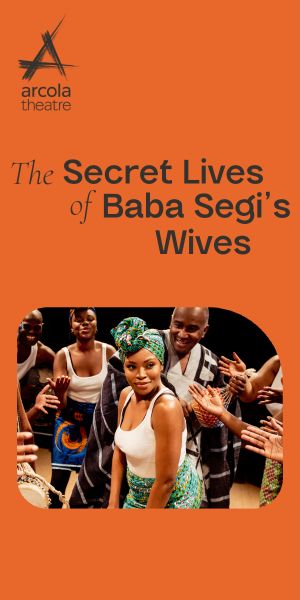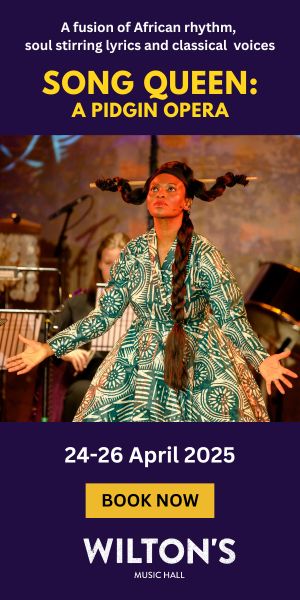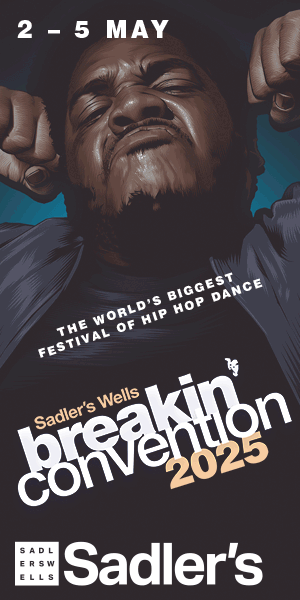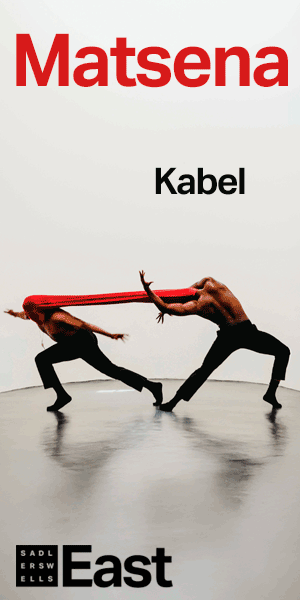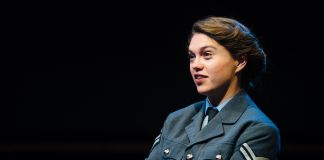
Quiet Songs is unlike any production I’ve seen before. It defies the conventions of a typical narrative-driven play, yet it tells the poignant story of a troubled young boy grappling with the struggles of adolescence. The story unfolds through a dynamic blend of monologue, live music by a string quartet and evocative lighting and sound, creating a unique theatrical experience that is captivating, bewildering and thought-provoking.
As the audience files into the theatre, a still body lies on stage with its back to them, unmoving as everyone takes their seats and waits with anticipation for the performance to begin. Suspended above the body, a sword points downward, adding a sense of foreboding. The stage is entirely grey and bare, except for a raised platform where the figure rests, dressed in a grey school uniform. Four musicians, each carrying a string instrument, enter the stage. Everything hints that this will not be a conventional production.
The body stirs, revealing it’s Ruth Negga in the role of a character known simply as Boy. Boy begins to share glimpses of his life at school, talking about a universally disliked teacher and his complex relationships with classmates. As his story unfolds, we learn of the bullying he endures and the homophobic taunts that drive him to self-harm. Boy speaks in an almost poetic language, describing his isolation and despair with a slow, mesmerising clarity. At first glance, Ruth Negga might seem an unusual choice for the role because she is a 40-something Oscar-nominated actor playing a queer teenage schoolboy in an intimate stage production. Yet she is extraordinary, capturing Boy’s vulnerability and fragility so convincingly that her casting feels nothing short of inspired.
“Quiet Songs undeniably offers something fresh, innovative and thought-provoking and that, in itself, is no small achievement”.
As Boy recounts his story, he is accompanied by the four string musicians, Fra Rustumji on violin, Chihiro on viola, Hoda Jahanpour on cello, and Thea Sayer on double bass, who play haunting, often discordant melodies that echo Boy’s inner turmoil. These musicians are far more than mere background, they are integral to the overall theatrical experience. For example, engage in fights using real swords and more dramatically, utilising the very bows they use to play their instruments, releasing a plume of powder when they strike each other. At times they play their string instruments with swords and at other times swords become the instrument they play. Swords are an important part of this production and at one point the back of the stage is decorated with dozens of them hanging menacingly downward, intensifying the tension and danger that permeates the scene.
Director Finn Beames, who also wrote the play and composed its music, has meticulously crafted each element of this production to evoke an atmosphere that shifts between melancholy, haunting, and unsettling, yet remains endlessly intriguing. While the visual and sound design are cleverly constructed, they occasionally draw attention away from the storytelling. This isn’t necessarily a flaw, as these elements play a crucial role in the narrative, however, there were moments when a greater emphasis on the spoken word might have heightened the piece’s emotional impact even further.
Quiet Songs feels like the kind of play that will divide audiences and that perfectly captures my own reaction. I’m torn between seeing it as a quiet triumph and finding it quietly perplexing. While it may not appeal to everyone, especially those who prefer a more traditional narrative structure, Quiet Songs undeniably offers something fresh, innovative and thought-provoking and that, in itself, is no small achievement.
Need to know: Quiet Songs plays until 2 Nov 2024 at the Barbican Centre

























